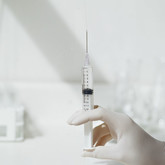Biosimilars
Measures to promote the use of biosimilars
How to increase the uptake of biosimilars is an important issue both in Europe and across the world. Europe, via its centralized European Medicines Agency (EMA), has been very successful in approving biosimilars. There are currently 73 biosimilars approved in Europe, almost all of which were marketed immediately after approval [1]. Despite the success in approving and marketing biosimilars, the uptake of biosimilars does vary between different countries in Europe. To encourage the use of biosimilars, targets and incentives have been used across Europe [2]. However, pricing can also play an important role and was investigated by Josep Maria Guiu Segura and Antoni Gilabert Perramon [3].
Prices for arthritis biologicals in Latin America
Analysis of the prices of biological and biosimilar drugs used to treat rheumatoid arthritis suggests these drugs are more accessible in Spain than in Latin America, but least affordable in the US [1].
FDA accepts application for Lupin’s pegfilgrastim biosimilar
India-based generics manufacturer Lupin Pharmaceuticals (Lupin) announced on 2 June 2021 that the US Food and Drug Administration (FDA) had accepted the application for approval for its proposed pegfilgrastim biosimilar.
New data on adalimumab biosimilars from Samsung Bioepis and Boehringer Ingelheim
Recently published data show that switching to Samsung Bioepis adalimumab
biosimilar Imraldi is safe and effective, while data from Boehringer Ingelheim suggest their adalimumab biosimilar, Cyltezo, could be classed as interchangeable.
The role of the patient in treatments with biosimilars in Argentina
This is how Dr Eduardo Mysler, Medical Director for the Research Medical Organization (OMI) and rheumatology specialist with a long research career reflects that ‘patients have to understand all the details of their disease’.
Trastuzumab emtansine ‘similar biologic’ Ujvira launched in India
India-based generics manufacturer Zydus Cadila (Zydus) announced on 24 May 2021 the launch of its trastuzumab emtansine ‘similar biologic’ Ujvira in India. The launch, according to Zydus ‘marks the world’s first biosimilar antibody drug conjugate (ADC) of trastuzumab emtansine’.
Positive phase III results for tocilizumab biosimilar BAT1806
US biotechnology company Biogen Idec (Biogen) and China-based Bio-Thera announced on 1 June 2021 positive phase III data for their tocilizumab biosimilar, BAT1806. According to the two companies, ‘the comparative study met its primary endpoints and showed equivalent efficacy and comparable safety profile in patients with moderate-to-severe rheumatoid arthritis’.
US Supreme Court rejects Enbrel patent challenge from Sandoz
The US Supreme Court has declined to review a patent challenge from Sandoz on Amgen’s blockbuster anti-inflammatory, Enbrel (etanercept). This means Sandoz will not be able to launch its etanercept biosimilar, Erelzi (etanercept-szzs), on the US market until 2029.
Efficacy and safety of Yuflyma vs reference adalimumab in rheumatoid arthritis
Yuflyma (CT-P17) is an adalimumab biosimilar, administered at 100 mg/mL that also has the same citrate-free and high concentration formulation of reference adalimumab. To demonstrate the bioequivalence of CT P17 to reference adalimumab, a randomized, double-blind, active-controlled study in subjects with moderate to severe rheumatoid arthritis (RA) was conducted [1]. The study was designed to demonstrate equivalence of efficacy (ACR20* response rate at Week 24) for CT P17 versus reference adalimumab and to evaluate additional efficacy, pharmacokinetics (PK), usability and safety over one year.
Positive phase I results for Meiji’s ustekinumab biosimilar
Japan-based Meiji Seika Pharma (Meiji) announced on 21 May 2021 positive phase I results for its candidate ustekinumab biosimilar, DMB-3115.












